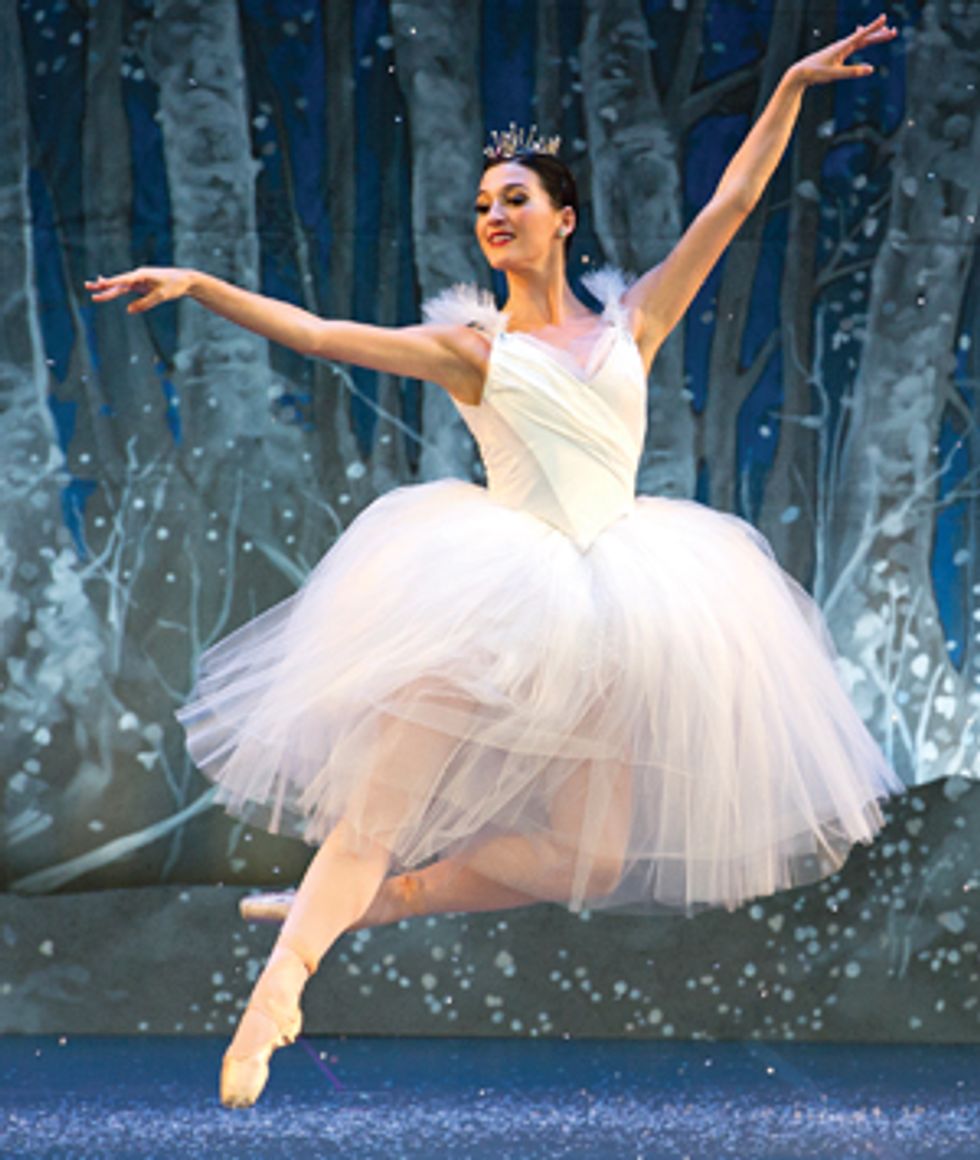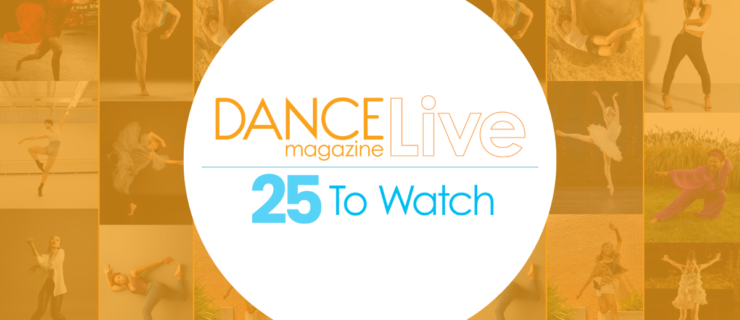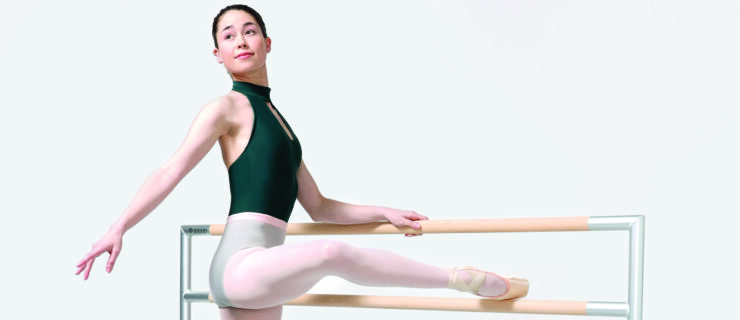Big Fish in a Little Pond

Emily Mistretta in The Nutcracker (Gene Schiavone)
If you’re a talented small-town ballet student, you’ve probably wondered: Should I leave my local studio to study at a top-notch school? At the bigger institution, you’d have more intense training, which would help when it came time to audition for companies. But if you left you’d miss your family and friends—and the super-personalized attention you get from your local ballet teacher.
If you’re thinking about making the leap from a local studio to a major training program, read the stories of these four dancers who did. You’ll find out how it worked—or didn’t work—for them.
Emily Mistretta, corps member, Boston Ballet
Inland Pacific Ballet Academy in California, where I trained for years, is a great school, but I felt I had more to learn than it could teach me. Every time I went away to a summer intensive, I thought seriously about staying for the school’s year-round program. I was always conflicted, though; I wanted to finish high school at home.
After I graduated high school, I went to Boston Ballet School’s summer session, and the school invited me to come year-round. I went home to California for two weeks, discussed it with my family, and got right back on a plane to Boston! I knew it was a great opportunity.
When I first got to Boston, I felt like I was behind. The other dancers had been in full-time ballet schools for years, while I’d only been doing ballet in the evenings. The schedule was intense—we danced for about eight hours a day—and I had a lot of self-doubt: Did I make the right decision? How’s this going to turn out?
Luckily, I was able to make friends quickly. That’s pretty much what saved me. And as a trainee, I got instant exposure by working with the company. I was so happy when I got my contract!

Sarah Van Patten in Swan Lake (Erik Tomasson)
Sarah Van Patten, principal, San Francisco Ballet
When I decided I wanted to be a ballet dancer, my parents said a big institution like Boston Ballet School would have the best teachers. So I started taking classes there when I was 8. But I had a different teacher every day, and I was one of about 30 kids in my class.
Then, when I was 11, I attended a summer program with Jacqueline Cronsberg at Ballet Workshop of New England. I immediately started learning variations and doing real dancing. I had long classes with Jacqueline every day, and was given lots of one-on-one attention. Her training is Balanchine, which puts a lot of emphasis on performance. That suited me.
When I told my parents I didn’t want to go back to BB, they assumed I’d given up on a dance career. If I didn’t want the big school with all the prestige, they thought, I’d just do dancing as a hobby. But it was the opposite. I wanted more time with my teacher. I wanted to be dancing more.
I was much happier at Ballet Workshop of New England. But everybody is different. You have to have these experiences for yourself, and be honest about how you feel.

Leah Slavens (front) dancing at PNB School (Rex Tranter)
Leah Slavens, Pacific Northwest Ballet School’s Professional Division
I went to Ballet Center of Houston from age 4 through my senior year in high school. I got to dance all kinds of big roles, and the teachers trained me really well. But the studio could only offer so much. They don’t have a lot of funding, space or time. I guess that’s why the decision to go to Pacific Northwest Ballet School after graduation was so easy.
It was a shock coming to a professional school with such a difficult training program. It was also hard to leave home, get an apartment and do everything that grown-ups do without having the experience of college dorm life. I just went straight into living on my own, having to cook for myself and take care of my own finances. A lot of kids my age don’t have to pay their own bills yet! And it’s hard only seeing my parents twice a year.
Part of me wishes I’d left home sooner, before I graduated high school. I feel a little bit behind ballet-wise sometimes. Then again, I’m glad I waited, because I feel more mature and ready to start a new phase of my life. It makes it easier that my friends at home have graduated and moved away too, so I don’t feel like I’m missing anything.

Faye Arthurs rehearsing with Craig Hall for the 1999 workshop performances at SAB (Rosalie O’Connor)
Faye Arthurs, corps member, New York City Ballet
Growing up in Pennsylvania, I took classes at Pittsburgh Youth Ballet School, where I learned a lot of George Balanchine repertory. I loved those ballets so much! But I declined invitations to the School of American Ballet’s summer session—SAB is the home of Balanchine technique, and feeds into New York City Ballet, Balanchine’s company—a few times because my parents weren’t ready for me to go. It wasn’t until I was 15 that they finally said OK.
After that summer, SAB asked me to stay for the year. I agonized over the decision. But I eventually thought, “Well, it’s now or never!” I had gotten to a certain place at my smaller school and was antsy to try something bigger.
It was hard the first year to be away from my family. You have to grow up so quickly, not only emotionally but practically—you have to do your own laundry and get yourself places on time. But I saw my father once or twice a month when he was in New York for business, which was helpful.
The biggest change from living in Pittsburgh was being able to see live performances all the time. SAB students get free NYCB tickets, and I went every night. That inspired my decision to join the company. You see the actual life of a dancer in a way you can’t at a small school.
SIGNS YOU SHOULD STAY
You don’t want to be “just a number.”
If you enjoy getting lots of personal attention from your teacher and don’t want to fight for a spot at the front of the class, consider sticking it out at your local studio.
You get anxious if you’re away from family and friends for more than a few days.
Leaving home and a tight-knit group of friends can make you homesick—and too distracted to focus on your training. Skyping, texting and phone calls will be your new norm. If the thought of that makes you break out in hives, you might not be ready to make the jump.
It just doesn’t feel right yet.
Trust your gut. Bigger schools don’t always mean bigger rewards. If it seems like the pros of uprooting yourself won’t outweigh the cons, try waiting a year or two before taking the plunge.
SIGNS YOU SHOULD GO
You want more than what’s offered at your home studio.
You’re ready for more intense training, different teachers and the chance to work with professional dancers.
You have your heart set on getting into a specific ballet company.
Most companies hire dancers from their schools, so it helps to already be in their programs. You’ll also get to watch performances and maybe even dance in some of them as a student at the company’s school.
You’re a risk-taker.
If you’re the type of person who enjoys, rather than dreads, new challenges, you’ll probably adapt quickly to the sink-or-swim environment that defines most larger schools. Go for it!




